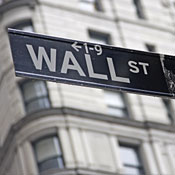
Musicians gathered at the Waldorf=Astoria on March 12 to welcome five of their own into the Rock and Roll Hall of Fame. 1960s girl group The Ronettes, 1970s punk icon Patti Smith, 1980s alternative pioneers R.E.M., and party rockers Van Halen were all honored at the ceremony ... but the real torchbearers of history were Grandmaster Flash and the Furious Five.
This hip-hop group featured a disc jockey who revolutionized using the turntable as an instrument, cutting between records to create a new sound altogether. As for the five rappers, they set the standard for using rap music as social commentary with their 1982 classic "The Message." This song offered a searing portrait of life in the ghetto, which would be followed by the anti-drug anthem "White Lines" a year later. (Ironically, one of them -- Keith Wiggins, a.k.a. Cowboy -- would fall victim to the crack epidemic and die of an overdose in 1989.)
Critics once said hip-hop would be nothing more than a passing fad ... but, thanks to these six men, it had staying power that redefined how one looks at fashion, sports, business, and even politics. The irony of this genre's metamorphosis is that it never sought validation from mainstream America, focusing instead on documenting the Black experience for those who could identify with it.
Mele Mel used his induction speech to implore today's rappers to resurrect the art form's creative spirit and not dwell so much on materialism and violence. While artists like Mos Def have heeded his call, too many others have not. With any luck, that trend will reverse itself.
